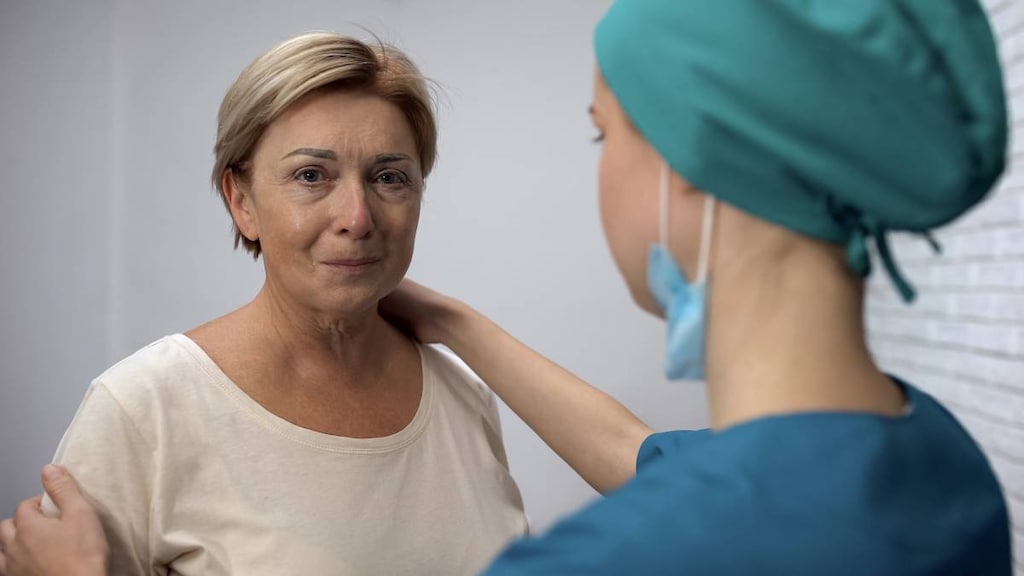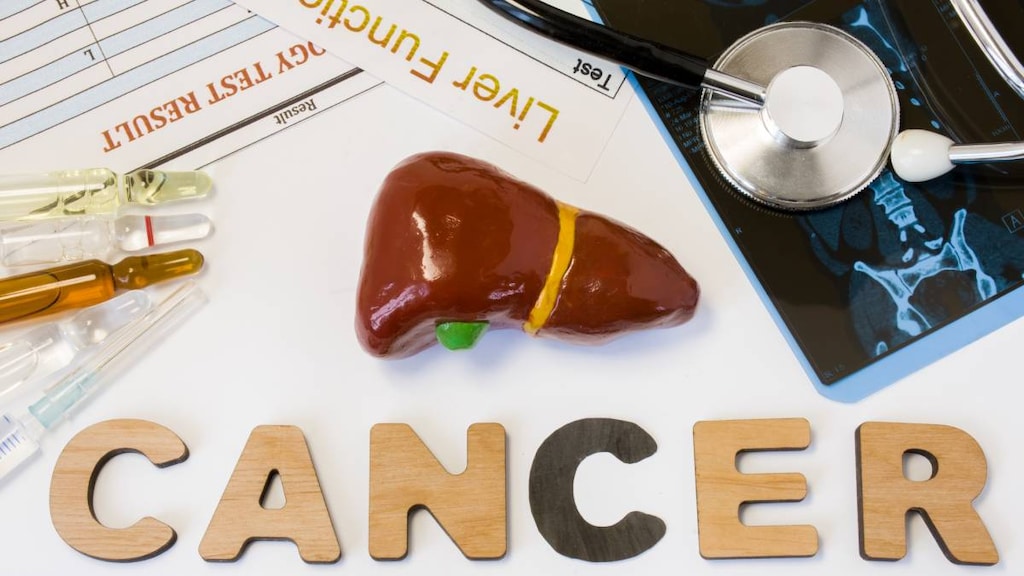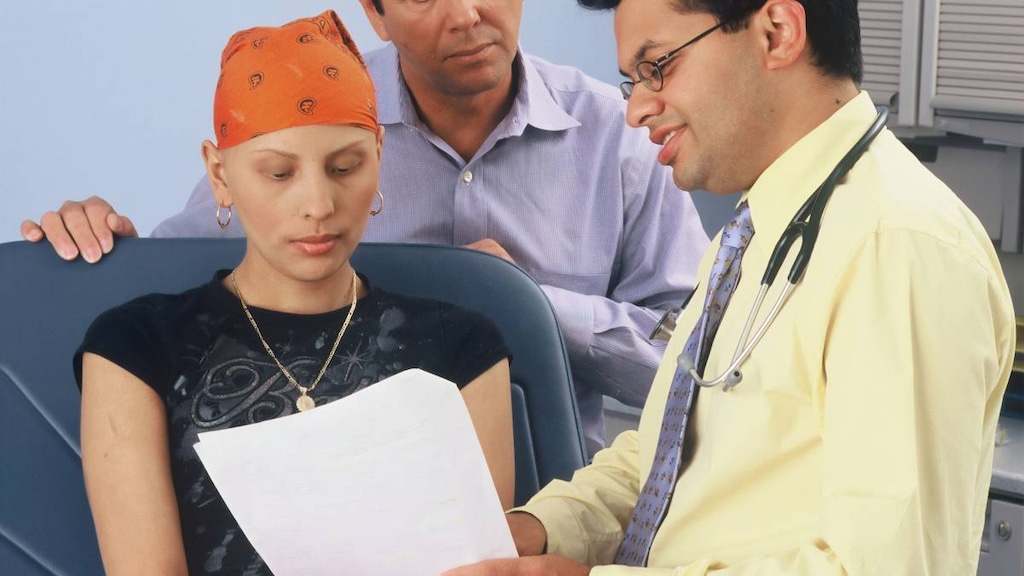Warning Signs of Liver Cancer

The liver is the body’s largest internal organ, and several different forms of cancer can affect it.
The most common form is known as hepatocellular carcinoma (HCC), a type of cancer that can grow as a single tumor or as individual nodules found throughout the liver. Other forms of primary liver cancer include intrahepatic cholangiocarcinoma (bile duct cancer), angiosarcoma, hemangiosarcoma and hepatoblastoma.
It’s actually more common for the liver to develop secondary liver cancer, where the cancer develops somewhere else in the body and then spreads to the liver, than primary liver cancer, cancer that originated in the liver.
Liver cancer by the numbers
Cancer is always a challenging diagnosis, but that is especially true with liver cancer. Though liver cancer is rare in the United States, it’s also quite deadly. The American Cancer Society estimated that about 42,000 people would get a liver cancer diagnosis in 2019 (nearly 30,000 men and about 12,000 women). The death rate from liver cancer is estimated to nearly match that of the diagnosis rate, with almost 32,000 people expected to die from the disease in 2019.
In other areas of the world, liver cancer can be even more deadly. Worldwide, there are 800,000 new cases of liver cancer each year, and more than 700,000 deaths. It’s the most common form of cancer in some African and Asian countries, and it’s a leading cause of cancer death worldwide.
Liver cancer risk factors
Liver cancer does have some signs and symptoms. The challenge, however, is that these often don’t appear until liver cancer is in its later stages, when it's much harder to treat successfully. To deal with this challenge, the American Cancer Society notes that your doctor may recommend tests to look for liver cancer if you have a greater risk for the disease. Higher-risk individuals include those with cirrhosis of the liver, people with a chronic hepatitis B infection and people with hereditary hemochromatosis.
Other factors that can increase your chances of developing liver cancer, according to the Mayo Clinic, include:
- Chronic hepatitis C infection
- Other inherited liver diseases
- Diabetes
- Excess alcohol consumption
- Fatty liver disease
- Exposure to aflatoxins (poisons produced by molds on stored crops)
Liver cancer warning signs
The signs and symptoms of liver cancer may not show up until later in the disease’s development, and they also may overlap with the warning signs of several other illnesses. However, the implications of liver cancer are severe enough that it’s worth talking to your doctor if you notice any combination of the following:
- Nausea, vomiting or loss of appetite
- Unexpected weight loss
- Feeling of fullness in the belly or under the ribs on either side
- Abdominal pain
- Shoulder pain
- Abdominal swelling
- Itching
- Jaundice (yellowing of the skin or eyes, dark urine and light-colored stools)
- Enlarged veins on the belly
- Abnormal bruising or bleeding
- Fever
When to see a doctor
The implications of liver cancer are quite serious, and survival rates for advanced stage liver cancer are low. Considering this, it’s certainly worth asking your doctor about liver cancer screening if you have any risk factors. If you have one or more risk factors plus any of the warning signs, that may increase your urgency to see your doctor. And any unusual combination of the warning signs that aren’t improving also warrant a discussion with your doctor about your risk for liver cancer.
Liver cancer diagnosis
If your doctor suspects that you might have liver cancer, there are a number of tests that he or she can use to make a diagnosis, the Mayo Clinic says. The first phase is typically blood testing to look for signs of abnormalities in how the liver is functioning. In addition, imaging tests such as computerized tomography (CT), ultrasound and magnetic resonance imaging (MRI) can be used to look for signs of cancer in the liver, such as tumors or other abnormalities.
The next phase in confirming a diagnosis of liver cancer involves obtaining a biopsy for testing. A biopsy is a sample of tissue that is obtained from the body to check for cancer. According to the American Cancer Society, a biopsy to check for liver cancer can be gathered using a needle, during a laparoscopy or with a surgical procedure.
These tests can be used to determine if liver cancer is present, and also which stage it has progressed to. Like many cancers, liver cancer is ranked in stages according to its severity, with stage 1A being the least severe and stage 4B being the most severe. The stage of liver cancer is based on a number of factors, including how large the tumor is, how many tumors are present and how far the cancer has spread. The prognosis is much better when liver cancer is detected and treated early, which makes testing for liver cancer especially important for people at higher risk.
Treatments for liver cancer
When it’s possible, the best treatment for liver cancer is liver transplant surgery. The American Cancer Society notes that survival rates for those with early stage liver cancer who undergo the procedure are between 60 and 70 percent after five years. For all other liver cancer treatments, five-year survival rates are not higher than 31 percent.
For early stage liver cancer that remains contained within the liver, another potential treatment includes surgery to remove the tumor or tumors. A treatment known as cryoablation can be used to kill the cancer cells by freezing them, while radiofrequency ablation accomplishes the same goal using heat. Alcohol and chemotherapy are two other injection-based treatments that can also be used to kill cancer that is confined to the liver.
Though advanced stage liver cancer is more difficult to treat, there are still a number of potential options that doctors can try. These include radiation therapy that can shrink tumors and kill cancer cells all over the body, as well as targeted therapies that block the abnormalities of cancer cells and cause them to die off. Biological therapy, also known as immunotherapy, uses the body’s own immune system to fight off the cancer. Traditional chemotherapy also may be used for liver cancer treatment.
Supportive, or palliative, care is another option for liver cancer treatment. This form of care focuses on reducing side effects and improving quality of life for people who are coping with the symptoms of liver cancer, as well as the side effects of the treatments.
The bottom line
Considering the high risk of death with the disease, it’s understandable that you’d want to protect yourself from liver cancer by any means necessary. Unfortunately, this challenge is compounded by the fact that many of the visible signs and symptoms of the disease, such as digestive problems, abdominal swelling or jaundice, do not show up until later in the disease’s progression.
Nevertheless, you may be able to protect your health by being vigilant about the signs and symptoms and asking your doctor if liver cancer testing might be right for you. This is particularly true if you’re a person who is at high risk for developing liver cancer, such as someone with cirrhosis, diabetes, nonalcoholic fatty liver disease or certain other liver diseases. Similarly, it’s also worth talking to your doctor about your liver cancer risk if you have had problems with alcohol in the past, or you have chronic hepatitis B or C infection.
Article references
- Key Statistics about Liver Cancer, American Cancer Society, 2019, https://www.cancer.org/cancer/liver-cancer/about/what-is-key-statistics.html
- What Is Liver Cancer?, American Cancer Society, 2019, https://www.cancer.org/cancer/liver-cancer/about/what-is-liver-cancer.html
- Can Liver Cancer Be Found Early?, American Cancer Society, 2019, https://www.cancer.org/cancer/liver-cancer/detection-diagnosis-staging/detection.html
- Liver Cancer, Mayo Clinic, 2019, https://www.mayoclinic.org/diseases-conditions/liver-cancer/diagnosis-treatment/drc-20353664
- Signs and Symptoms of Liver Cancer, American Cancer Society, 2019, https://www.cancer.org/cancer/liver-cancer/detection-diagnosis-staging/signs-symptoms.html
- Tests for Liver Cancer, American Cancer Society, 2019, https://www.cancer.org/cancer/liver-cancer/detection-diagnosis-staging/signs-symptoms.html
- Liver Cancer Stages, American Cancer Society, 2019, https://www.cancer.org/cancer/liver-cancer/detection-diagnosis-staging/staging.html
- Liver Cancer Survival Rates, American Cancer Society, 2019, https://www.cancer.org/cancer/liver-cancer/detection-diagnosis-staging/survival-rates.html



